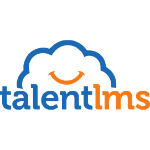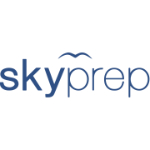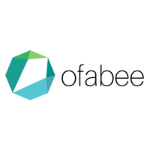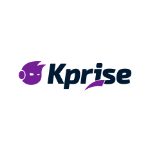TechnologyCounter provides genuine, unbiased real user reviews to help buyers make informed decisions. We may earn a referral fee when you purchase through our links, at no extra cost to you.
List of 15 Best Dynamic Learning And Training Software
Showing 1 - 15 of 33 productsTalentLMS is a and innovative online learning platform that streamlines the process of training and development for businesses of all sizes. With user-friendly features design, it offers a seamless learning experience for both teachers and learners...Read TalentLMS Reviews
Simpliv is a leading online platform that offers a wide range of courses for individuals looking to upskill and enhance their knowledge. With a user-friendly interface and a diverse library of courses, Simpliv is dedicated to providing accessible and...Read Simpliv Reviews
Articulate is a software system that is revolutionizing the way professionals create and deliver interactive e-learning content. By providing intuitive tools and seamless integration, Articulate empowers users to elevate their training and presentati...Read Articulate Reviews
Jigsaw is a tool for organizing your digital world. Designed to simplify and streamline your tasks, Jigsaw offers a user-friendly experience with its intuitive interface and powerful features. Say goodbye to cluttered files and scattered information,...Read Jigsaw Reviews
Schoology is a and innovative learning management system designed to transform the way students and educators engage with education. With its intuitive interface and dynamic features, Schoology allows users to easily create, manage, and deliver conte...Read Schoology Reviews
ProProfs Training Maker is an exceptional tool for creating and managing online courses and facilitating learning. This platform empowers trainers and educators to develop courses and oversee learners efficiently...Read Proprofs Training Maker Reviews
Mindflash is a training platform designed to meet the evolving needs of businesses and organizations. Whether its compliance training, onboarding, or professional development, Mindflash offers a user-friendly is a solution for creating, delivering, a...Read Mindflash Reviews
TestCone is a software that takes efficiency and effectiveness to a whole new level. Simplifying the testing process with its user-friendly interface, TestCone is designed to optimize your workflow and save you time and resources. Perfect for busines...Read TestCone Reviews
Classtime is a tool for modern education. With its innovative features and user-friendly interface, Classtime revolutionizes the learning experience for both teachers and students. Say goodbye to traditional methods and hello to a dynamic, interactiv...Read Classtime Reviews
SkyPrep LMS is a user-friendly and innovative learning management system designed to revolutionize how organizations train and educate their employees. With its highly customizable features, intuitive interface, and unmatched efficiency, SkyPrep LMS...Read SkyPrep LMS Reviews
Constructor is a essential tool for efficient and hassle-free programming. With its user-friendly design and impeccable functionality, Constructor sets a new standard for software creation. Say goodbye to endless hours of coding and debugging, and he...Read Constructor Reviews
Litmos is a learning management system that is changing the face of corporate training. With its intuitive design and powerful features, Litmos is the go-to platform for organizations looking to elevate their employee development programs. Say goodby...Read Litmos Reviews
Ofabee is a solution for all your online teaching needs. With a user-friendly interface features, Ofabee empowers educators to effortlessly create, manage, and deliver courses to students across the globe. Boost your teaching experience with Ofabee a...Read Ofabee Reviews
MyPass LMS is a software designed to transform the way we learn and teach. With its user-friendly interface features, MyPass LMS aims to make the process of online learning efficient and effective. Whether youre a student or an educator, MyPass LMS c...Read MyPass LMS Reviews
Orai - your ultimate public speaking companion. With advanced voice recognition technology and personalized feedback, Orai helps you hone your speaking skills, reduce filler words, and convey your message with confidence. Perfect for students, profes...Read Orai Reviews
- What Is Dynamic Learning and Training Software?
- Top Reasons Why Businesses Need Dynamic Learning and Training Software?
- What Are the Top Key Features of Dynamic Learning and Training Software?
- What Are the Top Benefits of Dynamic Learning and Training Software?
- What Are the Steps to Choose the Right Dynamic Learning and Training Software?
- What Are the Types of Dynamic Learning and Training Software for Different Industries?
- What Are the Technology Trends for Best Dynamic Learning and Training Software?
- What Are the Deployment Options for Dynamic Learning and Training Software?
What Is Dynamic Learning and Training Software?
Dynamic Learning and Training Software is a sort of educational software application that helps students learn in numerous ways by incorporating multimedia and interactive features. Typically employed inside an educational environment, particularly in tandem with an instructor, its primary purpose is to offer supplementary guidance, exercises, and consolidation of knowledge for pupils.
The incorporation of interactive and multimedia components in top dynamic learning and training software enhances learner engagement by accommodating various learning styles. The complexity of this program can vary, encompassing multiple choice quizzes and games for elementary subjects, as well as intricate simulations and visualizations for advanced subjects.
Furthermore, this platform has the capability to be modified for various educational levels, ranging from kindergarten to college. This allows educators to personalize their instructional resources according to the specific needs of their students.
Furthermore, educational software frequently offers the option of customization, enabling educators to design and deliver tailored activities that align with the topics taught in the classroom and align with the learning objectives of the students.
Dynamic learning and training software typically includes interactive modules that offer a variety of activities and games, such as drag-and-drop exercises, fill-in-the-blank tasks, riddles, virtual tours, quizzes, and other similar features.
These instructional modules facilitate enhanced learner engagement and foster a greater inclination towards in-depth exploration of the subject matter. The exercises additionally allow students the opportunity to engage with the information through a variety of modalities, thereby strengthening their comprehension.
In general, the utilization of the best dynamic learning and training software is advantageous for both educators and students due to its incorporation of interactive multimedia components. This technology provides teachers with the capacity to strengthen the concepts covered in the classroom, while affording students the chance to acquire supplementary teaching and engage in further practice.
Top Reasons Why Businesses Need Dynamic Learning and Training Software?
1. The utilization of dynamic learning and training software mitigates expenses related to training by obviating the requirement for tangible resources, such as printed materials or costly audio-visual apparatus.
2. The dynamic and self-paced learning environment of this system promotes active participation with the training materials and enhances employees' self-assurance.
3. Dynamic learning strategies, such as the utilization of simulations and gamification, have the capacity to engender an immersive educational experience that encompasses elements of both challenge and entertainment.
4. Dynamic learning and training software enables firms to maintain their competitiveness and remain current with the latest industry innovations by providing them with real-time access to skills updates.
5. Learners have the opportunity to further their education during periods of inactivity by engaging in virtual courses or concise lessons that are specifically designed to cater to their individual learning requirements.
6. Dynamic learning and training software is a valuable tool for firms seeking to optimize their investment by efficiently equipping staff with the necessary information and abilities required for their respective roles.
7. Real-time feedback, facilitated by the use of digital badges and leaderboards, serves as a motivating factor for employees, enabling them to sustain their motivation levels and achieve successful outcomes in their training endeavors.
8. Top dynamic learning and training software enables users to engage in learning activities at their convenience, providing them with the flexibility to access courses and educational resources at any given time and location.
9. The adaptability of training materials allows for swift modifications to cater to the evolving requirements of learners.
10. Adaptive learning approaches are employed to individualize the learning process for every user, facilitating their advancement at an individualized rate.
11. The best dynamic learning and training software is a very efficient platform for evaluating the knowledge and abilities of employees, hence offering valuable insights into their performance.
12. Computer-based training materials offer a higher level of consistency and currency compared to traditional materials, hence furnishing employees with a more dependable knowledge management foundation.
13. Trainers have the ability to obtain data regarding the development of learners and customize the training program to cater to the specific needs and requirements of each individual learner.
14. The implementation of user profiles that are both accessible and secure facilitates the efficient process of enrolling in courses and monitoring the progress of course completion.
15. Learners have the ability to maintain connectivity with their colleagues and trainers through the utilization of secure online discussion forums. These forums facilitate collaboration and communication, irrespective of geographical constraints.
What Are the Top Key Features of Dynamic Learning and Training Software?
The top key features of dynamic learning and training software include:
1. Automated Adaptive Learning: This functionality enables users to establish personalized learning strategies and access exclusive content that is specifically matched to their individual requirements.
2. Gamified Learning: Enables users to engage in an enjoyable and dynamic learning experience, incorporating various challenges, accomplishments, and incentives.
3. Smart Content Authoring: The platform provides users with the capability to generate compelling and dynamic content that incorporates textual elements, and visual components such as photographs, audio files, and video materials.
4. Analytics and Reporting: Enables users to effectively monitor and assess the advancement of learners, while also providing comprehensive insights through personalized reports.
5. Mobile Learning: This system facilitates users in conveniently accessing educational resources at any given time and from any location, utilizing a diverse range of devices like cellphones, tablets, and laptops.
6. Multilingual Support: Enables people to acquire knowledge in their language of choice.
7. Single Sign-On Authentication: This enables users to authenticate themselves securely by utilizing a single form of identity.
What Are the Top Benefits of Dynamic Learning and Training Software?
1. Dynamic learning and training software facilitates: By offering captivating and interactive educational materials, it enhances the level of student involvement and comprehension.
2. Its modular approach enables customised learning pathways: Due to the customizable nature of modules, students have the opportunity to learn at their own pace and achieve a more comprehensive grasp of the subject matter.
3. It allows for quick feedback: Students have the opportunity to obtain feedback upon the completion of activities promptly, thus facilitating a more efficient learning process.
4. It increases the participation of the learners: Top dynamic learning and training software encourages students to participate more actively during training sessions, allowing them to get the most out of their learning experience.
5. It’s designed to increase retention: By engaging in deliberate practice and repeated exposure, learners can enhance their ability to recall a greater amount of the subject information.
6. It allows users to collaborate: The utilization of this platform facilitates interpersonal engagement and collaborative efforts among individuals, hence enhancing the overall educational encounter through increased levels of involvement.
7. It allows for the collection of data: The utilization of the best dynamic learning and training software enables trainers to effectively monitor the development and performance of their pupils, hence facilitating the overall learning process.
What Are the Steps to Choose the Right Dynamic Learning and Training Software?
1. Identify your learning needs: Initially, it is vital to ascertain one's learning requirements. Consider the desired objectives that you aim to achieve through your training program, as well as the specific subjects and information that you intend to incorporate. This will facilitate the development of a top dynamic learning and training software specification for the desired application.
2. Research potential products: Examine the various training software packages available in the market and investigate their respective features and capabilities. It is advisable to thoroughly analyze user feedback and conduct a comparative analysis of pricing when making a product selection.
3. List features: Upon conducting thorough investigation, kindly enumerate the specific attributes and functionalities that you seek in the software. This may encompass factors such as user-friendliness, scalability, affordability, progress monitoring capabilities, and other relevant considerations.
4. Test out the product: After the process of narrowing down the available possibilities, it becomes crucial to conduct a thorough evaluation of the selected program. Engage in the exploration of various features and conduct an assessment of the user experience. This will assist in ensuring that the software aligns appropriately with the requirements and objectives of your firm.
5. Make the purchase: After completing the necessary research and doing appropriate testing, the next step is proceeding with the purchase. It is imperative to thoroughly assess the various payment alternatives, license conditions, and additional particulars prior to finalizing the purchase.
What Are the Types of Dynamic Learning and Training Software for Different Industries?
Top dynamic learning and training software is a software application that provides learners with focused content and interactive exercises, facilitating the application of acquired knowledge in an entertaining and efficient manner.
The Dynamic Learning training program is widely utilized throughout various industries, encompassing sectors such as healthcare, education, information technology, finance, hospitality, and numerous others.
The availability of dynamic learning and training software might vary between industries, contingent upon the specific industry and the intended objectives of the training program.
Generally, examples of the best dynamic learning and training software used in different industries include:
1. Digital evaluation tools, such as online quizzes and examinations, are utilized to evaluate an individual's proficiency and advancement in a certain skill or subject area.
2. Interactive educational resources, including simulations, three-dimensional visualizations, and movies,
3. Long-term educational trajectories, such as a customized curriculum that adjusts to the unique requirements of the learner.
4. The implementation of gamification in educational settings involves the utilization of incentives and achievements as motivational tools for learners who demonstrate effective performance.
5. Automated adaptive feedback, such as reminders and notifications, serves as a mechanism to actively maintain student engagement.
6. The provision of mobile device support, encompassing features such as mobile-friendly interfaces and interoperability with multiple devices. Social learning components, such as the inclusion of discussion boards and the provision of chatbot support, are present in the platform.
What Are the Technology Trends for Best Dynamic Learning and Training Software?
The current technology trend for the best dynamic learning and training software includes:
1. Cloud-Based Platforms: Cloud-based learning platforms provide enterprises and organizations with a convenient means of monitoring the progress of their employees' training endeavors. Cloud-based models offer a more cost-effective alternative to in-person training due to their minimal hardware and software investment requirements.
2. Artificial Intelligence: The utilization of AI technology is having a transformative impact on the methods by which firms are providing training to their staff. The utilization of AI-driven training software enables the personalization and customization of training materials in accordance with an individual's unique learning style and level of expertise. This capability has the potential to diminish the expenses and exertion associated with delivering tailored training programs to each individual.
3. Mobile Learning: The prevalence of mobile learning is on the rise as an increasing number of firms see the advantages associated with offering training resources that can be accessed remotely. Mobile learning applications provide convenient access to important resources for employees, thereby enhancing their job performance and equipping them with the necessary skills and knowledge.
4. Gamification: The utilization of gamification has proven to be a successful strategy in enhancing employee engagement and acquiring valuable engagement metrics. Training programs that incorporate enjoyable and interactive components have the potential to enhance employee engagement and facilitate more effective information retention.
5. Virtual Reality: The utilization of virtual reality-based training programs is experiencing a significant surge in popularity within the realm of corporate training. Virtual reality (VR) is being increasingly employed by companies as a means of facilitating product training, technical skills training, and job-task simulations.
By utilizing virtual reality technology, organizations have the capability to offer a secure and controlled setting for their employees to engage in skill testing and practice before implementing them in real-life scenarios.
What Are the Deployment Options for Dynamic Learning and Training Software?
When implementing top dynamic learning and training software, there exists a range of deployment choices that can be selected. The most often favored alternatives encompass
1. On-premise: This methodology entails the deployment of the program within one's own office or data center. This feature enables enhanced management of the software's operational environment, albeit necessitating a higher allocation of IT resources and support personnel.
2. Cloud-hosted: This methodology entails deploying the software to a cloud-based server, such as Amazon Web Services or Microsoft Azure. The aforementioned strategy is frequently regarded as the most economically advantageous method because of its ability to minimize operational expenses. However, it is important to acknowledge that this approach is not without certain vulnerabilities in terms of security.
3. Mobile: This methodology entails deploying the program on a portable electronic device, such as a smartphone or tablet. The utilization of cloud-based software is frequently seen as the most convenient alternative due to its ability to be accessed from any location. However, it is important to note that this strategy necessitates a stable internet connection.
4. Hybrid: This methodology encompasses the integration of on-premise, cloud-based, and mobile deployment alternatives. This affords increased adaptability, albeit necessitating enhanced coordination among the various deployment modalities.















